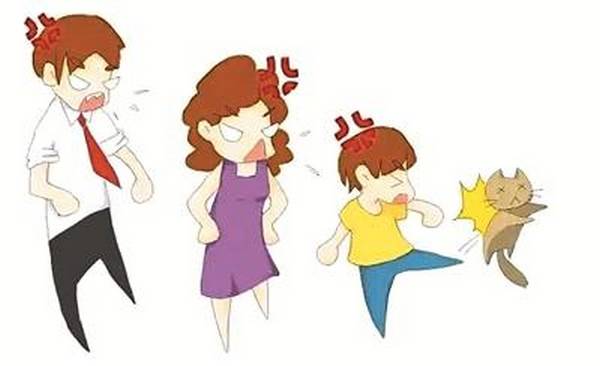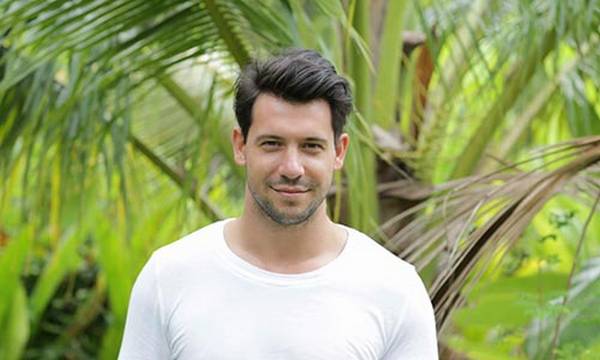- A+
???lesson 47 a cup of coffee 一杯咖啡
课文
christine : do you like coffee, ann?
ann : yes, i do.
christine : do you want a cup?
ann : yes, please, christine.
christine: do you want any 
sugar?
ann :yes, please.
christine: do you want any milk?
ann :no, thank you.
i don’t like milk in my coffee.
i like black coffee.
christine: do you like biscuits?
ann :yes, i do.
christine: do you want one?
ann :yes, please.
这一课里,涉及到一个非常重要的词的用法——助动词。很多同学学到这里会晕,问题往往出在不知道什么时候使用 be 动词,什么时候使用助动词上面。
我们观察这节课课文中的句子,都是这样的句型:
do you +?动词原形.....
christine : do youlike coffee, ann?
christine : do youwant a cup?
christine: do youwant any sugar?
christine: do you want any milk?
christine: do youlike biscuits?
christine: do youwant one?
句子中的这个 do 有一个称呼,叫“助动词”。
背诵下面的概念:
助动词的意思,就是这个词(do)要帮助句子中的动词提问和否定。只有没有使用 be 动词和情态动词的句子,才需要用到助动词。
我们来展开讲一下上面要求大家背诵的概念。
只有没有使用 be 动词和情态动词的句子,才需要用到助动词。
有be动词的句子,为什么不需要用到助动词呢?因为 be 动词本身就能完成提问和否定的功能,并不需要别的词帮忙。
例如:
it is hot today.
在第一课中就学了,我们把这个句子变成疑问句,只需要把 be 动词提前:
is it hot 
today?
把这个句子变成否定句,只需要在 be 动词后面加 not:
it is not hot today/ it isn’t hot today.
既然, be 动词已经足以提问和否定了,就不需要再用别的词了。所以,有be 动词的句子,不需要用到助动词(现阶段)。
情态动词同理,本身就足以完成提问和否定。
例如:
i can swim.
can you swim?
i cannot swim.
i must see her.
must you see her?
i?mustn’t see her.
再来重复一遍,只有没有使用 be 动词和情态动词的句子,才需要用到助动词。
对于没有be 动词的句子,提问和否定就都需要借助助动词了。
比如:
i like coffee.
这个句子里没有 be 动词。那么你要提问的时候,就不能像有 be 动词的句子一样,直接把动词提前,变成:
like i coffee? ?
必须要借助助动词,让助动词在句首:
do you like?coffee? ??
在否定的时候,也不能像有有 be 动词的句子一样,直接在动词后面加 not,变成:
i like not coffee.??
必须要借助助动词+not,放在动词前面:
i don’t like coffee.???
所以文章中的这几个问句,我们都可以还原为陈述句:
i?want?a cup.
i?want?some sugar.
i?want some?milk.
i?like?biscuits.
i?want?one.
对于使用了助动词的提问,通常回答的时候也是用助动词。
比如:do you like coffee?
通常不回答:
yes,i like coffee.
而是沿用助动词:
yes, i do.
因为通过上文我们已经知道在谈论什么了,再使用完整的回答太啰嗦了。
lesson 48?do you like .. .?你喜欢.....吗??do you want.. .?你想要.....吗?
根据图片中的内容,使用 do you like .... 和 do you want ....句式问题并回答。
例如:
do you want any eggs?
yes, i do.
a. ?完成以下句子,用off, over, between, along, in front of, behind, under 或 across 等介词或介词短语填空。
1 the aeroplane is flying _____ the village.
2 the ship is going?_____ the bridge.
3 the children are swimming _____?the river.
4 two cats are running _____?the wall.
5 the boy is jumping _____?the branch.
6 the girl is sitting _____?her mother and her father.
7 the teacher is standing _____?the blackboard.
8 the blackboard is _____?the teacher.
b.?模仿例句回答问题,注意可数名词与不可数名词的区别
例子:
do you like eggs?
yes, i do. but i don’t?want one.
do you like butter?
yes, i do. but i don’t want any.
1 do you like honey?
2 do you like bananas?
3 do you like jam?
4 do you like oranges?
5 do you like ice cream?
6 do you like whisky?
7 do you like apples?
8 do you like wine?
9 do you like biscuits?
10 do you like beer?
附加题
请把下面的句子变为疑问句和否定句:
they are best friends.
they go fishing on saturday.
he is my chinese teacher.
he comes from xuzhou.
i?
????




